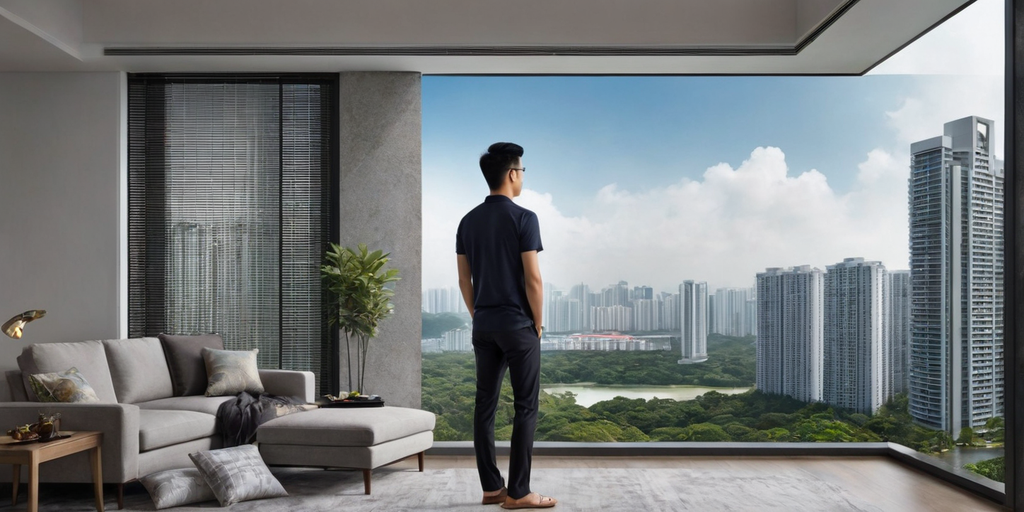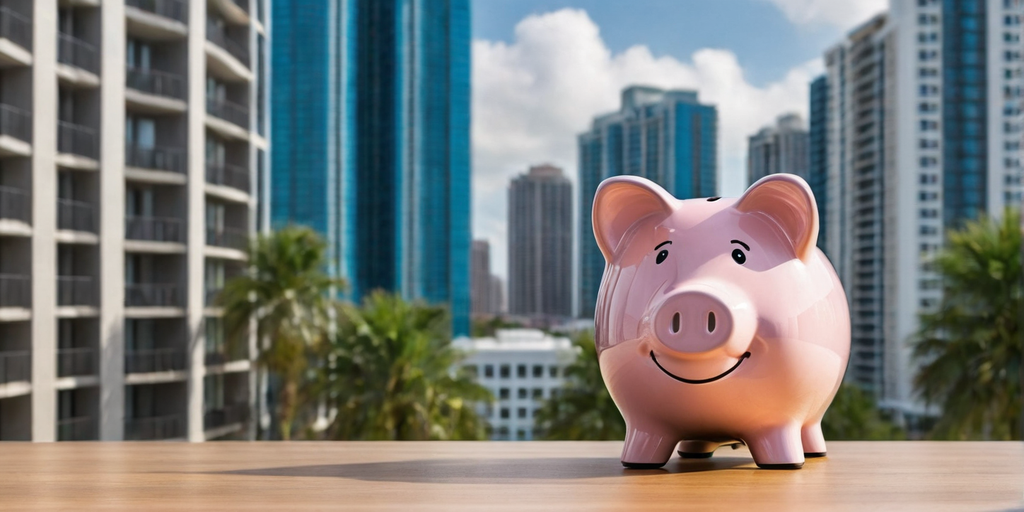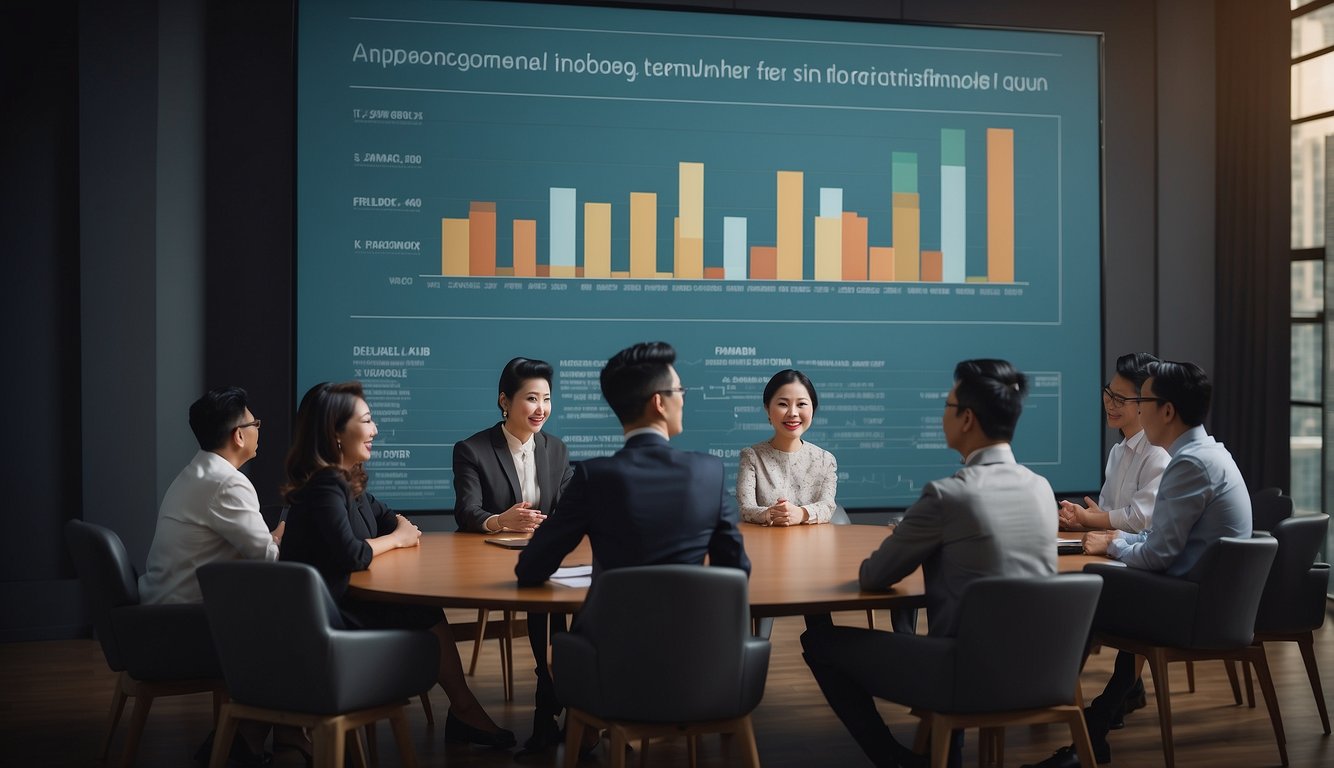Are you planning to purchase a condo in Singapore? One of the first things you need to know is the downpayment required for your purchase. A condo downpayment is the initial payment you make when you purchase a condominium unit. It is a percentage of the total purchase price of the property and is usually paid in cash or CPF (Central Provident Fund) savings.

Understanding condo downpayments in Singapore is essential if you want to make a smart home purchase. The amount of downpayment required varies depending on various factors such as the purchase price, your citizenship or residency status, and the type of property you are buying. In this article, we will take a closer look at condo downpayments in Singapore, including eligibility and regulations, financial planning, and the home buying process.
Key Takeaways
- A condo downpayment is a percentage of the total purchase price of the property and is usually paid in cash or CPF savings.
- The amount of downpayment required varies depending on various factors such as the purchase price, your citizenship or residency status, and the type of property you are buying.
- Understanding condo downpayments in Singapore is essential to make a smart home purchase.
Understanding Condo Downpayments in Singapore

If you’re planning to buy a condo in Singapore, one of the most important things you need to consider is the downpayment. The downpayment is the initial payment made when purchasing a condo, and it’s usually a percentage of the total purchase price. In this section, we’ll cover the basics of condo downpayments in Singapore, including the loan-to-value (LTV) limit, minimum cash downpayment requirements, and more.
Basics of Downpayment
The downpayment for a condo in Singapore varies depending on whether you’re a Singapore citizen, permanent resident, or foreigner. According to SingSaver, the total downpayment for a Singaporean is typically 25% of the purchase price, of which at least 5% must be paid in cash. Permanent residents, on the other hand, are required to pay a minimum of 20% of the purchase price, while foreigners must pay at least 30%.
Loan-to-Value (LTV) Limit
The loan-to-value (LTV) limit is the maximum amount of money you can borrow from a bank or financial institution to purchase a property. In Singapore, the LTV limit for condos is 75% for the first property, and 45% for the second and subsequent properties. This means that if you’re buying your first condo in Singapore, you can borrow up to 75% of the purchase price from a bank or financial institution.
Minimum Cash Downpayment Requirements
As mentioned earlier, a minimum cash downpayment is required when purchasing a condo in Singapore. According to MoneySmart, the minimum cash downpayment is 5% of the purchase price for all buyers. This means that if you’re buying a condo that costs $1 million, you’ll need to pay at least $50,000 in cash.
In summary, understanding condo downpayments in Singapore is crucial if you’re planning to purchase a condo. The downpayment amount varies depending on your citizenship status, and a minimum cash downpayment is required for all buyers. Additionally, the LTV limit determines the maximum amount of money you can borrow from a bank or financial institution to purchase a condo.
Eligibility and Regulations

If you’re planning to buy a condo in Singapore, there are certain eligibility and regulations you need to be aware of. In this section, we’ll cover the citizenship and residency rules as well as the stamp duties for different buyer profiles.
Citizenship and Residency Rules
As a foreigner, you are allowed to buy a condo in Singapore, but you will need to seek approval from the authorities. However, Singapore citizens and permanent residents (PRs) do not require approval to purchase a condo. Singapore citizens and PRs can also use their CPF savings for the downpayment, but there are withdrawal limits. The minimum downpayment varies for Singapore citizens (5%), permanent residents (20%), and foreigners (30%).
Stamp Duties for Different Buyer Profiles
When purchasing a condo in Singapore, you will need to pay stamp duties. The stamp duties include buyer’s stamp duty (BSD) and additional buyer’s stamp duty (ABSD) where applicable. The BSD is calculated based on the purchase price or market value of the property, whichever is higher. The ABSD is an additional tax that is levied on certain buyers, such as foreigners and entities. The ABSD rates vary depending on the buyer profile.
Here’s a table summarizing the ABSD rates for different buyer profiles:
| Buyer Profile | ABSD Rate |
|---|---|
| Singapore Citizens | 0% |
| Singapore Permanent Residents buying first residential property | 5% |
| Singapore Permanent Residents buying second residential property | 15% |
| Foreigners and entities buying any residential property | 20% |
It’s important to note that the ABSD rates are subject to change, so it’s always a good idea to check the latest rates before making a purchase.
In summary, as a foreigner, you will need to seek approval from the authorities to buy a condo in Singapore and pay a higher downpayment and ABSD rate. Singapore citizens and PRs have more favorable rules and regulations.
Financial Planning for Your Condo Purchase

Buying a condo is a significant investment that requires careful financial planning. Before you start scouting for properties, it’s essential to assess your financial situation and calculate your affordability. This section will guide you through the financial planning process for your condo purchase.
Calculating Your Affordability
When it comes to buying a condo, affordability is key. You need to determine how much you can afford to spend on your property purchase. This involves assessing your income, expenses, and existing debts. You can use an affordability calculator to help you determine what you can afford. The calculator will take into account your income, expenses, and existing debts to estimate how much you can afford to spend on your condo.
Once you have determined your affordability, you can start looking for properties that fit within your budget. Remember, you will need to pay a downpayment of at least 5% of the purchase price in cash and the remaining amount can be paid from your CPF Ordinary Account or bank loan.
Assessing Additional Costs
In addition to the downpayment, there are other costs associated with buying a condo that you need to consider. These include legal fees, property tax, maintenance fees, and mortgage loan interest rates. You will also need to factor in the cost of any renovations or repairs that you may need to make after you have purchased the property.
Legal fees are charged by your lawyer or conveyancer for handling the legal aspects of your property purchase. These fees can vary, so it’s essential to get a quote upfront. Property tax is an annual tax that you will need to pay on your property. The amount you pay will depend on the value of your property.
Maintenance fees are charged by the condo management to cover the cost of maintaining the common areas and facilities. These fees can vary depending on the size and type of the property. You will need to factor in these costs when determining your affordability.
In conclusion, it’s crucial to plan your finances carefully when buying a condo in Singapore. Assessing your affordability and factoring in additional costs will help you determine what you can afford and avoid any financial commitment that you cannot handle.
The Home Buying Process in Singapore

Choosing the Right Condo
When buying a condo in Singapore, the first step is to choose the right property that suits your needs. Consider factors such as location, amenities, and proximity to essential facilities like schools, public transport, and shopping centres. Research on different condominiums and assess their suitability based on your lifestyle and preferences.
Securing a Home Loan
Securing a home loan is a crucial aspect of the home buying process. As a first-time homebuyer, you can explore various loan packages offered by lenders and assess the loan tenure that best fits your financial situation. Additionally, understanding the lock-in period and property valuation process is essential to ensure a smooth loan application process.
Finalising the Purchase
Once you have selected a property and secured a home loan, finalising the purchase involves navigating the resale process, liaising with the developer, and understanding the legalities involved in buying a residential property in Singapore. As a Singaporean citizen, you may also consider HDB BTO flats as an option and understand the differences between purchasing a BTO flat and a resale condominium.
Frequently Asked Questions

How much do I need to save for a down payment on a resale condo?
If you’re a Singaporean citizen or permanent resident, you’ll need to put down a minimum of 5% of the purchase price in cash and/or CPF funds. For the remaining amount, you can use a combination of CPF funds and bank loans. If you’re a foreigner, you’ll need to put down at least 20% of the purchase price in cash.
What’s the maximum amount of my CPF funds I can utilise for my condo’s initial payment?
The maximum amount of CPF funds you can use for your condo’s initial payment depends on the type of property you’re buying, whether you’re a first-time buyer, and your age. For example, if you’re a first-time buyer purchasing a resale condo, you can use up to 15% of your Ordinary Account (OA) savings and up to 35% of your Special Account (SA) savings.
Is it possible to purchase a condo without making any down payment at all?
No, it’s not possible to purchase a condo without making any down payment at all. You’ll need to put down a minimum of 5% of the purchase price in cash and/or CPF funds if you’re a Singaporean citizen or permanent resident.
Could you guide me through the payment schedule when buying a condo?
Sure! When buying a condo, you’ll need to pay a booking fee of 1% of the purchase price to the seller’s agent. After that, you’ll need to pay the option fee, which is typically 4% of the purchase price, within 14 days of exercising the option to purchase. The remaining down payment of at least 5% of the purchase price must be paid within 8 weeks of exercising the option to purchase.
What’s the ideal amount to put down when securing a condo?
The ideal amount to put down when securing a condo depends on your financial situation and goals. Generally, it’s recommended to put down as much as you can afford to reduce your monthly mortgage payments and interest charges. However, you should also consider your other financial obligations and goals, such as saving for retirement or your children’s education.
How do I figure out the price range of condos I can afford in Singapore?
To figure out the price range of condos you can afford in Singapore, you’ll need to consider your income, expenses, and other financial obligations. A general rule of thumb is that your monthly mortgage payments should not exceed 30% of your gross monthly income. You can use online mortgage calculators or consult with a financial advisor to help you determine your price range.

